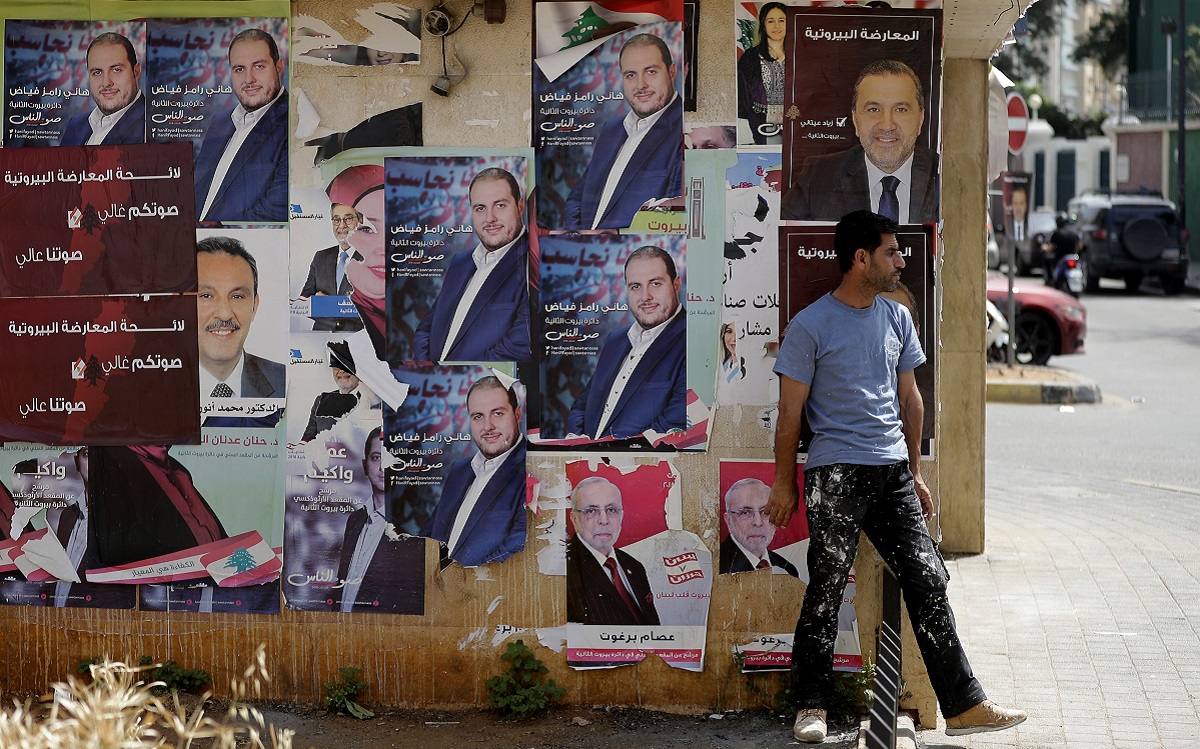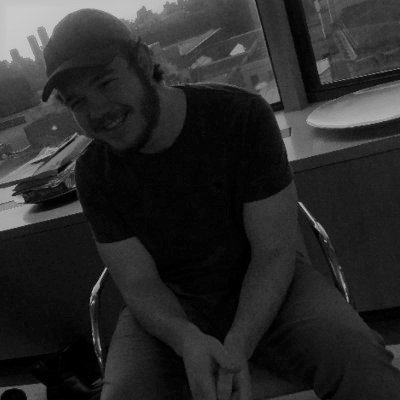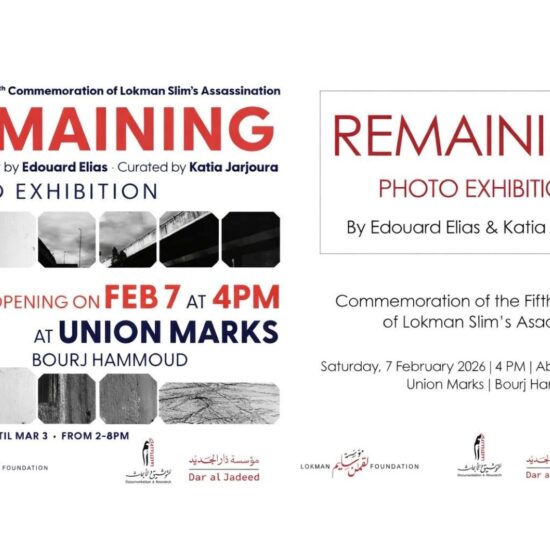
On March 19, members of Beirut Tuqawem, a participatory and secular electoral campaign started by members of the Secular Clubs in Beirut and focused on progressive policies, arrived on a Saturday afternoon in Tariq el-Jdideh, a Beirut neighborhood.
They set up a tent and intended to hand out flyers and speak to possible voters in order to promote their political program. The campaign volunteers have done the same in other areas of Beirut to garner support, and their events had gone smoothly until then.
But in Tariq el-Jdideh the campaign ran into some unexpected hostility.
A group of men claiming to be supporters of former Prime Minister Saad Hariri, the leader of the Future Movement, assailed Beirut Tuqawem in the streets of Tariq el-Jdideh, tearing down their tent and aggressively threatening that more Hariri supporters were on the way.
“They started telling us this is ‘our’ area, ‘we don’t have elections here,’ ‘Hariri said there won’t be elections so there won’t be,’” Marwan Issa, a 24-year-old member of Beirut Tuqawem, told NOW. “ Then they started telling us to go away, threatening us that more people are coming from the other side of the area, and motorcycles and Hariri supporters just kept increasing,” he said.
Though the Future Movement is not running in the May 15 elections, after the party leader Saad Hariri withdrew from politics two months ago, his supporters would not tolerate a new political movement on what they saw as their territory. They reacted to what Ramzi Abou Ismail, a political psychologist and an Associate Lecturer at the University of Kent, called a symbolic fear, which is what members of Lebanese sectarian party constituencies have in common.
In fact, he said, incidents like the one that occurred in Tariq el-Jdideh may become more common as the May elections approach.
“Symbolic fear is a fear for one’s lifestyle, one’s beliefs, one’s way of life… and usually, in authoritarian regimes, these people become more conservative in the sense that they don’t want things to change, so they are happy with the way things are… They want to protect their way of life,” Ismail told NOW.
The incident
Tariq el-Jdideh is a Beirut neighborhood that sits next to the Sabra and Shatila Palestinian refugee camps and is also not far from the Hezbollah-dominated southern suburbs. Its population are largely working-class Sunni Muslims, who have generally favored the Hariri family and then the Future Movement since its rise after the civil war.
Even within Future Movement circles, violence has erupted between competing factions. Less than two years ago, intercommunal clashes broke out in Tariq el-Jdideh between supporters of Saad Hariri and supporters of his brother, Bahaa. In May 2008, fighters from the neighborhood clashed with Hezbollah forces on the streets of Beirut, after the Future Movement-led government requested the Party of God to give up setting up a parallel telecom network.
But the young volunteers of Beirut Tuqawem say that, although they expect some resistance in some areas where they campaign, nothing of the sort had happened until then.
“We’ve been holding public discussions almost on a weekly basis in Beiruti areas, to inform people of our campaign, to invite them to join and discuss with us priorities from their perspective in terms of what should be our electoral program,” Issa said.
But they were chased away from Tariq el-Jdideh.
“We kept trying to have discussions with them, and some of them were conversating, but then the tensions got too high and the threats increased, so we saw no point in continuing, and we packed our stuff and left,” Issa stated.
The incident was recorded and swiftly uploaded to Beirut Tuqawem’s Twitter account. Many people showed their support for the campaign, but others did not.
One Twitter user even said that not only did Tariq el-Jdideh belong to the Hariri family, but that “all Sunni areas from the South to the North belong to the Hariri family.”
Other users openly celebrated the tearing down of Beirut Tuqawem’s tent, repeating the line that there are no elections in “Hariri areas.”
“A few of them on social media circulated some messages demonizing us, or saying that we were there to provoke them or that we didn’t take the area’s social fabric into account and that we should’ve adapted our communication technique accordingly,” Issa told NOW.
Electoral strategy
Beirut Tuqawem is a relatively small group that fits in with the opposition that has emerged in recent years. Following the October 17 Revolution, parties that oppose the traditional sectarian makeup of Lebanon’s government have gained more prominence, as dissatisfaction with Lebanon’s system has grown.
With the withdrawal of Hariri from the May elections, enclaves of the Future Movement would be ripe for electoral progress for groups advocating for secularism, including Beirut Tuqawem. Young political activists say they hope that some of the voters who have been repeatedly disappointed by the policies and style of leadership of sectarian political parties like the Future Movement would decide to vote for secular candidates.
“But we’re not targeting them per se, as all constituencies have their own difficulties to access,” he continued. “Hariri supporters are often conservative per example, and don’t like some of the progressive ideas we’re putting forward,” Issa added.
To them, Beirut Tuqawem is as bad as Hezbollah because both these groups are causing the same type of threat in their minds, both these groups are threatening their values.
Issa also said that, although there had been no incidents during their campaign, the volunteers are always aware that this scenario may happen in any neighborhood controlled by a sectarian political party. But they chose to try anyway.
“Maybe it’ll end up constructively and some people actually become interested in what we have to offer, which did happen before tensions escalated,” he told NOW.
The “symbolic fear”
Abou Ismail explained that this type of behavior is due to the authoritarian way political factions in Lebanon rule over their constituencies.
“Elections generally are related to the concept of democracy. The concept of people freely choosing who they want to represent them whether in parliament or elsewhere. This is not how we perceive elections in authoritarian countries,” Ismail told NOW.
“The process is not about choosing your representative, it’s about celebrating your leader… [Authoritarian regimes] run a festive celebration of their leadership,” he continued.
Therefore, Ismail explained, even with Hariri technically out of politics, his supporters still feel an inherent need to follow his leadership, as he still provides for them symbolic safety. The Hariri family is seen as the protector of their values and way of life.
“Because Hariri has left the scene, these people are threatened. They fear that this symbolic safety that the leader’s supposed to give, may no longer [be provided],” he said.
“They would rather not vote, not be in the elections, and still be loyal to the idea of the leader, than engage or try to understand who is running in their districts,” Ismail added.
The presence of an alternative to the pre-existing leader, such as Beirut Tuqawem, can produce a fight or flight response, as it poses a symbolic threat. This was such the case, as Hariri supporters reacted to Beirut Tuqawem’s presence.
“To them, [Saad Hariri] is the leader, whether he runs for elections or not, until… either Saad is replaced by his older brother, or until a new Sunni leadership comes in and provides the same level of protection, of safety, for these symbols that they have in mind, where these people feel that they can still practice or preserve their lifestyle… their Sunni culture,” Ismail explained.
However, this phenomenon is not specific to the Sunni community or to those who support the Future Movement, he stressed.
For example, Maronites were not represented in the Taif Agreement that ended Lebanon’s civil war. The Maronite community’s primary leaders, such as Michel Aoun, Amin Gemayel, and Samir Geagea, were all exiled or put in prison. The community was then dominated by Rafic Hariri, Nabih Berri, and Elias Hrawi until the assassination of Rafic Hariri and the withdrawal of the Syrian army in 2005.
Ismail pointed out that Gebran Bassil, the current leader of the Free Patriotic Movement, uses the same type of leverage over segments of the Maronite community to maintain the Free Patriotic Movement’s power over its supporters. His political rhetoric has been focused on “protecting the rights of the Christians,” exploiting the fear of returning to the situation the community was in after Taif.
“The Sunnis, in a way, fear that after Saad’s departure from politics, something very similar would happen to them, especially with the growth that the Shiites are having,” Ismail explained.
A community at a crossroads
With Saudi Arabia and the rest of the Gulf’s detachment from Lebanese affairs, there is a fear within the Sunni community that they would become a disadvantaged group like the Maronites were after the end of the civil war.
The incident in Tariq el-Jdideh should be read through this lens of fear, he pointed out.
“When they felt threatened… What they felt was threatened was their values… They saw people that represent a different set of values, people who have a different set of morality, people who do not share the same moral code with them, people who don’t perceive Sunnis the same way that they do.”
Ismail pointed out that, much like members of other sectarian parties’ constituencies, those who support the Future Movement possess a mindset in which they are capable of recognizing the failings of the Lebanese state, but they do not perceive their leaders to be part of the problem.
“According to [supporters of the Future Movement], it’s not Hariri that is the problem. Hariri was compromising to find solutions. The problem was Hezbollah and [the Free Patriotic Movement]. They don’t perceive Hariri as part of the problem, they perceive him as part of the solution,” he said.
“To them, Beirut Tuqawem is as bad as Hezbollah because both these groups are causing the same type of threat in their minds, both these groups are threatening their values,” Ismail continued.
However, picking on a small electoral group like Beirut Tuqawem is counterproductive for what is left of the Future Movement, as there are more pressing electoral rivals.
“[The Future Movement’s] competition is not Beirut Tuqawem, it’s rather maybe Makhzoumi, maybe whoever Hezbollah is supporting in Beirut in terms of Sunnis… They are trying not to give Beirut Tuqawem more value than they think it deserves,” Ismail told NOW.
Overall, Hariri is waiting to see how the elections and regional politics will play out. There are currently a variety of crucial developments happening throughout the Middle East, such a possible nuclear deal with Iran and the normalization of the Assad regime in Syria.
“He’s not killing the movement, he’s just taking the movement out of day-to-day political engagement,” Ismail clarified.
David Isaly is a journalist and researcher with @NOW_leb. He tweets @DEyesalli.








